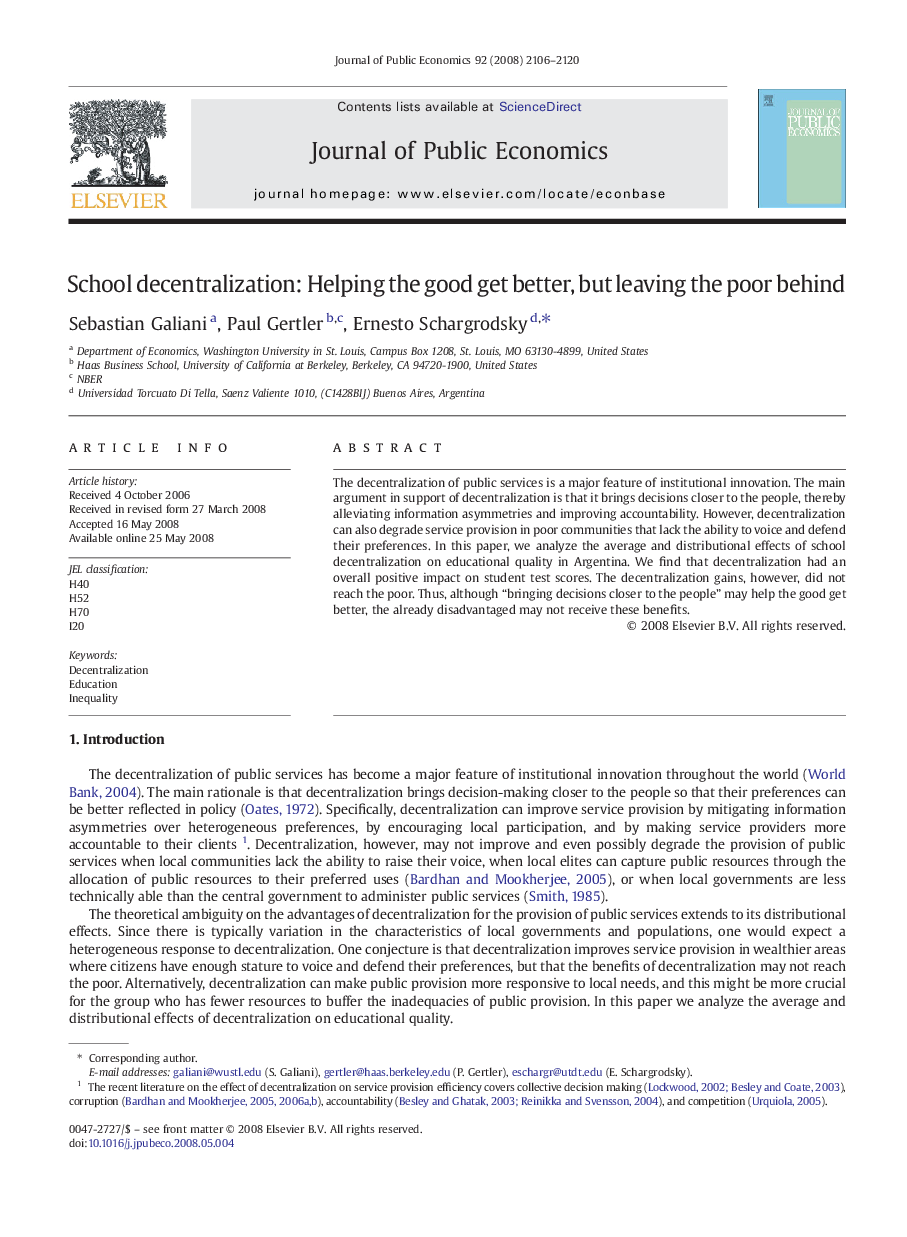| Article ID | Journal | Published Year | Pages | File Type |
|---|---|---|---|---|
| 970254 | Journal of Public Economics | 2008 | 15 Pages |
Abstract
The decentralization of public services is a major feature of institutional innovation. The main argument in support of decentralization is that it brings decisions closer to the people, thereby alleviating information asymmetries and improving accountability. However, decentralization can also degrade service provision in poor communities that lack the ability to voice and defend their preferences. In this paper, we analyze the average and distributional effects of school decentralization on educational quality in Argentina. We find that decentralization had an overall positive impact on student test scores. The decentralization gains, however, did not reach the poor. Thus, although “bringing decisions closer to the people” may help the good get better, the already disadvantaged may not receive these benefits.
Related Topics
Social Sciences and Humanities
Economics, Econometrics and Finance
Economics and Econometrics
Authors
Sebastian Galiani, Paul Gertler, Ernesto Schargrodsky,
